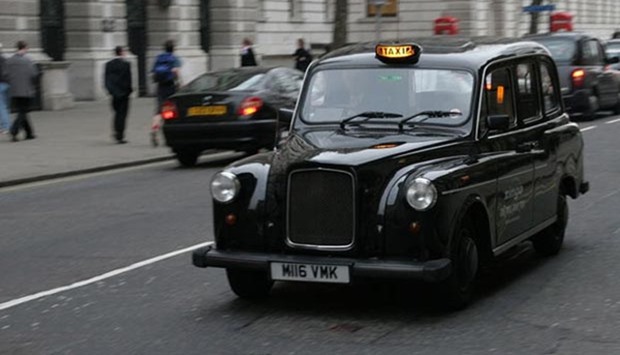London said on Tuesday it would introduce new measures to support its iconic black cabs including giving access to more bus lanes and boosting the number of taxi ranks, just as private hire firms such as Uber face stricter rules in the capital.
The city's traditional cabs have been hit by competition from a number of firms such as ride-hailing app Uber and private hire taxi firm Addison Lee, which have grown in popularity due to their often lower fares.
Under measures announced by the mayor of London, regulator Transport for London (TfL) will allow black cabs to access a further 20 of its bus lanes, provide journey details on its popular online journey planner tool and ensure all cabs accept card payments.
The number of taxi ranks will also increase by 20% to 600 by 2020.
"The taxi trade is an icon of our city and should be supported," Mayor of London Sadiq Khan said.
"While the legitimate private hire trade is an asset to London, we must not be complacent in ensuring it is safe for passengers. The need for greater enforcement and compliance, as well as stricter entry requirements, is clear for all to see."
In June, TfL unveiled a series of proposals to regulate the private hire sector, prompting Uber, whose investors include GV, formerly known as Google Ventures, and Goldman Sachs, to launch legal action.
The smartphone app won the right earlier this month for a legal review against written English tests for its drivers, the need for a London call centre and rules forcing it to inform TfL of major changes to its service.
TfL said on Tuesday that private hire drivers will also need to pass an advanced driving test prior to being licensed or relicensed by the summer of 2017, but did not provide details of what the additional testing would involve.
Rapidly expanding tech start-ups such as Uber have faced opposition from unions and longer-established competitors around the world, including in London where drivers of traditional black cabs have held a series of protests.
In a series of proposals released on Tuesday, TfL said it would also introduce measures to reduce the emissions from black cabs by only licensing zero-emissions capable vehicles from 2018 and introducing a scrappage scheme to encourage drivers to trade in older models for greener models.

London's traditional black cabs have been hit by competition from firms such as Uber and Addison Lee.
